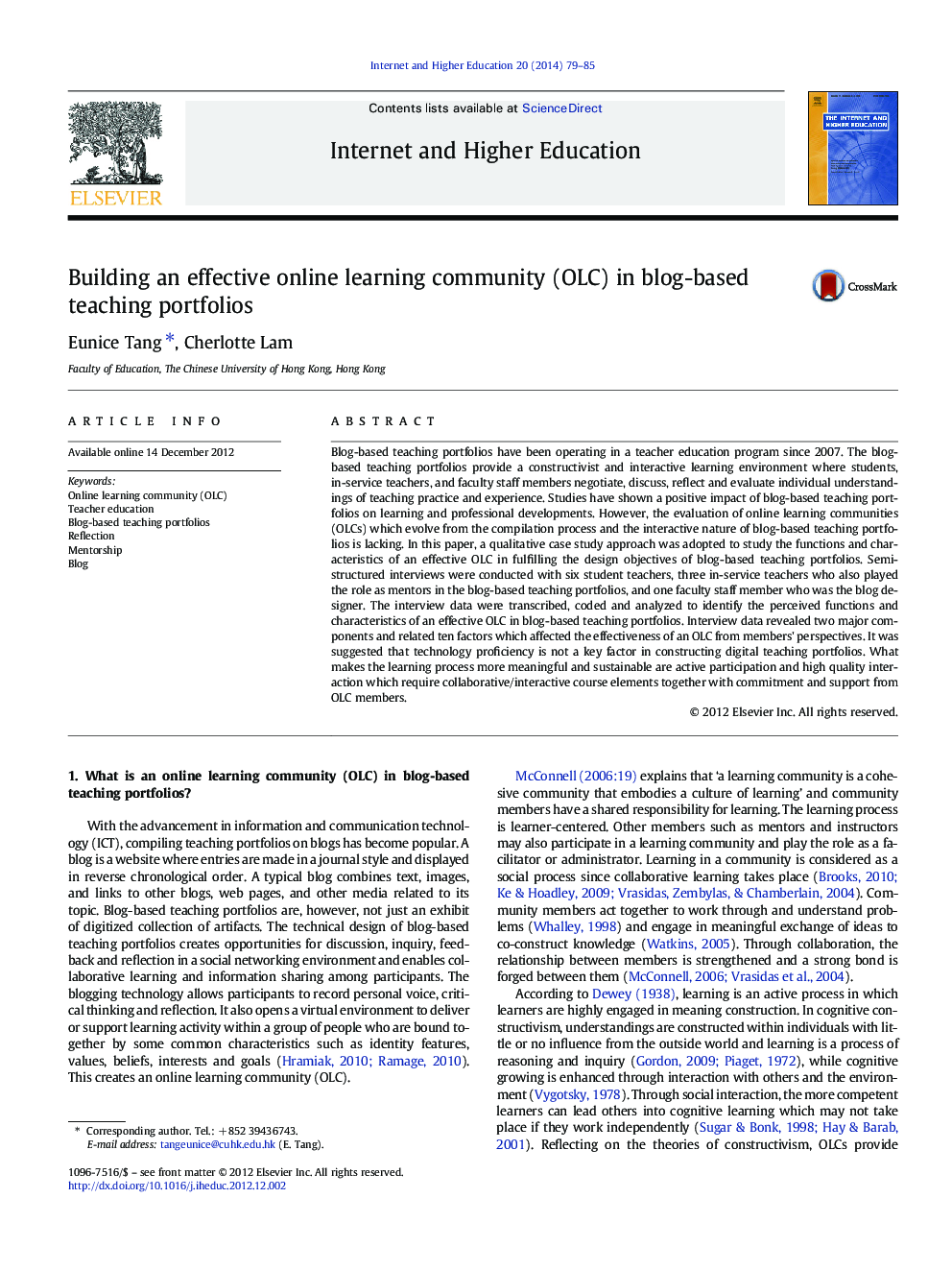| Article ID | Journal | Published Year | Pages | File Type |
|---|---|---|---|---|
| 357721 | The Internet and Higher Education | 2014 | 7 Pages |
Blog-based teaching portfolios have been operating in a teacher education program since 2007. The blog-based teaching portfolios provide a constructivist and interactive learning environment where students, in-service teachers, and faculty staff members negotiate, discuss, reflect and evaluate individual understandings of teaching practice and experience. Studies have shown a positive impact of blog-based teaching portfolios on learning and professional developments. However, the evaluation of online learning communities (OLCs) which evolve from the compilation process and the interactive nature of blog-based teaching portfolios is lacking. In this paper, a qualitative case study approach was adopted to study the functions and characteristics of an effective OLC in fulfilling the design objectives of blog-based teaching portfolios. Semi-structured interviews were conducted with six student teachers, three in-service teachers who also played the role as mentors in the blog-based teaching portfolios, and one faculty staff member who was the blog designer. The interview data were transcribed, coded and analyzed to identify the perceived functions and characteristics of an effective OLC in blog-based teaching portfolios. Interview data revealed two major components and related ten factors which affected the effectiveness of an OLC from members' perspectives. It was suggested that technology proficiency is not a key factor in constructing digital teaching portfolios. What makes the learning process more meaningful and sustainable are active participation and high quality interaction which require collaborative/interactive course elements together with commitment and support from OLC members.
